What are night sweats?
Sleep is the bedrock of our health and wellbeing. Often feeling like a luxury, sleep is essential for your body and brain to perform a tabula rasa, or a reset. If you don’t get enough sleep, you can suffer emotionally, physically and mentally.
Night sweats aren’t just feeling too hot in bed, but a continued disruption of your sleep from sweating. Sufferers are often woken up soaked through their night clothes, despite the room temperature being cool. It’s uncomfortable and can be alarming, but also not that unusual, as the Sleep Foundation advises 40% of people visit their doctor with this condition. Other symptoms of night sweats are:
- Feeling cold after a bout of sweating
- Difficulty sleeping after an episode of night sweats
- Repeated sweating throughout the night
Who suffers from night sweats?
Anyone can suffer night sweats, both children and adults, but women tend to be affected more than men. Women who are pregnant or going through menopause are more likely to experience sweating at night. Both are due to the fluctuation of hormones during these phases of a woman’s life.
In both menopause and perimenopause, estrogen levels lower, which makes it harder for the body to regulate temperature and night sweats occur as a result. During pregnancy, hormonal surges, increased blood flow and higher body temperature will bring on a bout of night sweats.
What are the causes of night sweats?
As discussed, women sweat at night due to a reaction to their hormones, but there are other reasons why we perspire on our pillows:
- Medication – some antidepressants, steroids and painkillers can cause excess sweating at night
- Anxiety
- Alcohol or drug use
- A condition called hyperhidrosis
- Sleep disorders such as sleep apnea
If your night sweats aren’t due to the above reasons, you should consult your doctor. The NHS states that sweating profusely when asleep can be a cause for concern if it falls into the following categories:
- Regularity – they occur very often
- Accompanied by a high temperature, cough or diarrhoea
- Loss of weight

Why might your bedding be triggering your night sweats?
Night sweats can often be linked to your bedding choices, even if you keep your room cool. The fabric type, weave, and weight can all influence how heat and moisture build up around your body. When bedding restricts airflow or fails to wick away sweat, your body may work harder to cool down, leaving you overheated and restless. Understanding how these factors affect temperature regulation will help you choose materials that keep you comfortable all night.
Material Matters
If there’s no medical reason for sweating at night, your bedding could be the culprit. If it does not offer enough breathability and traps heat and moisture, your body reacts by sweating to cool it down. Synthetic materials such as polyester, microfibre or nylon will trap heat and won’t wick away moisture. Instead, it’s best to switch to cotton or, better still, bamboo fabric, as it has many cooling properties:
- Highly breathable, bamboo encourages airflow.
- Naturally thermoregulating, bamboo cools you down when the temperature is hot, adjusting you to the temperature for a rejuvenating rest.
- Moisture-wicking – you’ll remain dry and comfortable all night long
- Antibacterial, odour-resistant and absorbent, bamboo fends off dirt
Fabric weave and weight
Blissfully soft and invigorating, when bamboo fabric is mixed with rayon, the effect is smooth and silky to the touch. Compared with synthetic fabrics, bamboo rayon is lighter and feels supple against the skin. Lighter, breathable bedsheets will also prevent overheating as they have less weight.
A bedding’s thread count is important if you sleep hot; if it’s too high (over 500 thread count), it’ll trap heat. However, if a thread count is too low (less than 180), it won’t be durable. The ideal thread count for bedding depends on the fabric; bamboo bedding should be in the ideal range of 250-350, but for cotton, it should be in a range of 200-400.
Our 100% Bamboo Bedding Set has been commended by our customers for its breathability during hot weather, “Softest and most incredible bed sheets I’ve ever tried. 100% recommended and have been a godsend during this hot summer with ultimate breathability and softness. Going to purchase another set!”
Sleep Environment
Sleep experts also recommend bamboo for those who find it difficult to sleep in the heat.
Our medical expert, Dr. Seeta, says, “Natural materials such as bamboo, cotton, linen, are ideal for temperature regulation. These fibres are breathable, moisture-wicking, and allow for passive airflow. In contrast, synthetic materials tend to trap heat and moisture, increasing the risk of night sweats, overheating, or repeated awakenings due to temperature fluctuations.”
To summarise, we’ve provided a checklist on the main things to look for when selecting the best bedding for night sweats:
- Natural, lightweight fibres are best, such as linen, cotton and bamboo
- Breathability rating – not an official metric, but rather a guideline on the breathability of the fabric
- The GSM-90-130 GSM – the ideal grams per square metre are light to midweight fabrics, and ideal for cooling you down
It’s a good idea to modify your bedding environment if you’re too hot. Don’t lie under too many sheets and blankets, as this can trigger night sweats. If you don’t have a mattress protector, it’s time to invest! Shielding your mattress from dust and dirt, a protector can prevent allergic reactions, which increase your metabolic rate, and this, in turn, causes you to sweat. Don’t just swap your fitted or flat sheets for breathable natural fabrics, but also change your pillow cases. They can help to cool you down, because if your head is hot, your whole body temperature rises too. Please read our blog post on the best bedding sets for hot sleepers for more information on the coolest fabric choices.
Solutions
Don’t sweat it! There are solutions to night sweats. The Sleep Foundation recommends some easy ways to remain cool at night:
- The ideal temperature of your bedroom should be 60-68 degrees Fahrenheit
- Wear loose-fitting and breathable pyjamas or night clothes
- Sleep on cooling bedding and sleep products
- Unwind before bedtime by practising yoga or meditation
- Drink plenty of water during the day
- Avoid spicy foods and limit alcohol and caffeine
Some more cool tips
Store your bedding in the fridge so it's cool in time for bedtime. Ideal Home suggests sealing your sheets in a freezer bag to protect them inside the fridge. In a 2024 study, The Lancet medical journal endorsed keeping a fan on at night to keep you cool. If you’re concerned about your night sweats and they have been occurring regularly, they’re getting worse or are accompanied by other symptoms, you should consult a medical professional.
To avoid getting hot under the collar, add a breathable Hybrid Bamboo Pillow to your bed set-up. Active O2 Micro-pods™ inside the memory foam promote airflow, while contouring to your sleeping position, aligning your neck and spine. Our organic bamboo cover is moisture-wicking, so you’ll remain dry throughout the night.
A cool foundation, such as our Hybrid Bamboo Mattress Pro, which is made up of six layers, with one dedicated to our BioCell Foam™, will counteract the heat of memory foam by infusing it with cooling bamboo. Topped off with a hypoallergenic and thermoregulating bamboo cover, our mattress keeps you at the best temperature for a deep sleep. With a layer of encapsulated springs to isolate motion transfer, it prevents both allergies and movement from disrupting your slumber. Please read our blog post on cooling bamboo bedding products for night sweats for further recommendations from our range.
Say Goodnight to Sweats
In conclusion, if you want your bed to be the coolest place to be, bamboo will breathe new life into your set-up. Please choose from our Bamboo & French Linen, 100% Bamboo Bedding or Signature+™ for highly breathable and super soft sheets every bedtime. Improving your sleep after one night, you’ll never wake up in a cold sweat again. Shop our blissfully cooling bedding sets here.
FAQ
1. What is the ideal thread count and GSM for cooling bedding?
When choosing sheets to help with night sweats, pay attention to both thread count and GSM (grams per square metre). For bamboo bedding, a thread count between 250–350 delivers optimum breathability; for cotton, aim for 200–400. Fabrics heavier than 500 thread count or with a GSM over 130 tend to trap heat and moisture. Look for lightweight sheets around 90–130 GSM to keep you cool and comfortable.
2. Which natural fabrics besides bamboo are best for hot sleepers?
While bamboo is one of the most breathable options, other natural fibres can also help combat night sweats. Linen is highly breathable and moisture‑wicking, making it ideal for hot climates. Organic cotton is soft, durable and allows airflow, while Tencel (made from eucalyptus wood pulp) offers excellent temperature regulation and a silky feel. Any of these sustainable materials can create a cooler sleep environment.
3. How does a mattress topper or protector reduce night sweats?
Using a breathable mattress topper or mattress protector can make a big difference for hot sleepers. A topper made from gel‑infused memory foam or latex with a bamboo cover adds a cooling layer, wicks away moisture and improves airflow. Meanwhile, a hypoallergenic mattress protector shields against dust mites and allergens that can raise your metabolic rate, keeping both you and your mattress cool and clean.
4. Are there lifestyle changes that can help prevent night sweats?
Yes. Staying hydrated during the day, limiting alcohol, caffeine and spicy foods, and maintaining a balanced diet can all help minimise night sweats. Try to establish a calming bedtime routine—practising yoga, meditation or gentle stretching can reduce stress and regulate body temperature. Keeping your bedroom between 16–20 °C (60–68 °F) and using a fan for extra airflow also promotes a cooler night’s sleep.
5. Do cooling pillows work for night sweats, and what should you look for?
Cooling pillows can make a noticeable difference if you overheat at night. Look for pillows filled with gel‑infused or ventilated memory foam, which dissipate heat more effectively than traditional foam. Covers made from bamboo or other moisture‑wicking fabrics further improve airflow and keep the pillow dry. If you suffer from neck pain or need more support, a hybrid pillow that blends memory foam with active cooling technology offers both comfort and temperature regulation.
Fact-checked by: Dr Seeta Shah

![[MattressTopper] Panda London Memory Foam Bamboo Mattress Topper package box](http://pandalondon.com/cdn/shop/files/Bamboo_Mattress_Topper_Package_Box.webp?v=1742301823&width=1500)
![[MattressTopper] Panda London Memory Foam Bamboo Mattress Topper on the floor](http://pandalondon.com/cdn/shop/products/Panda-Memory-Foam-Bamboo-Mattress-Topper-Yoga-e1624045454555.jpg?v=1758795458&width=1000)
![[MattressTopper] Bamboo Mattress Topper Lifestyle Image with Memory Foam Pillows Product Page](http://pandalondon.com/cdn/shop/files/Bamboo_Mattress_Topper_Lifestyle_Image_with_Memory_Foam_Pillows_Product_Page.webp?v=1758795458&width=800)
![[MattressTopper] Bamboo Mattress Topper Lifestyle Image with Bamboo Pillows In the Garden room Product Page](http://pandalondon.com/cdn/shop/files/Bamboo_Mattress_Topper_Lifestyle_Image_with_Bamboo_Pillows_In_the_Garden_room_Product_Page.webp?v=1758795458&width=800)
![[MattressTopper] Panda London Memory Foam Bamboo Mattress Topper side](http://pandalondon.com/cdn/shop/files/Mattress_Topper_Isolated_-_resized.jpg?v=1758795458&width=800)
![[HybridMattressPro] Hybrid_Bamboo_Mattress_Pro_Product_Image_2026](http://pandalondon.com/cdn/shop/files/Hybrid_Bamboo_Mattress_Pro_Product_Image_2026.webp?v=1764944771&width=1000)
![[HybridMattressPro] Breathable Hybrid Bamboo Mattress](http://pandalondon.com/cdn/shop/products/Breathable-Hybrid-Bamboo-Mattress.jpg?v=1764944771&width=1920)
![[HybridMattressPro] Hybrid Bamboo Mattress Pro Cover Zip](http://pandalondon.com/cdn/shop/files/Hybrid_Bamboo_Mattress_Cover.jpg?v=1764944771&width=800)
![[HybridMattressPro] Panda Hybrid Bamboo Mattress Pro](http://pandalondon.com/cdn/shop/files/Hybrid_Bambo_Memory_Foam_Mattress_-_BioCell_Foam_x.jpg?v=1764944771&width=800)
![[HybridMattressPro] Couple on a Hybrid Bamboo Mattress Pro](http://pandalondon.com/cdn/shop/files/Hybrid_Bamboo_Mattress_Couple.jpg?v=1764944771&width=800)
![[CloudDuvet] Panda London The Cloud Bamboo Duvet Packaging](http://pandalondon.com/cdn/shop/products/Panda-London-The-Cloud-Bamboo-Duvet-Panda-Life-scaled_00a651ad-4ca3-4105-b520-12a94c1a4f71.jpg?v=1713363286&width=1920)
![[CloudDuvet] Panda London The Cloud Bamboo Duvet Rolled](http://pandalondon.com/cdn/shop/products/Duvet-Listing-Images03.jpg?v=1764079307&width=1000)
![[CloudDuvet] Panda London The Cloud Bamboo Duvet Girl Huggin a Duvet on the Bed](http://pandalondon.com/cdn/shop/files/Cloud_Bamboo_Duvet_-_Lady_Hugging_it_on_Bed_LifestyleImage.jpg?v=1764079307&width=1000)
![[CloudDuvet] Panda London The Cloud Bamboo Duvet Guy In the Air with Cloud Bamboo Duvet](http://pandalondon.com/cdn/shop/files/GuyonaHybridBambooMattresswithCloudDuvet.jpg?v=1764079307&width=2000)
![[CloudDuvet] Panda Cloud Duvet Winter on the bed lifestyle image](http://pandalondon.com/cdn/shop/files/Panda_Cloud_Duvet_Winter_on_the_Bed_Lifestyle-1_image.jpg?v=1764079307&width=1000)
![[BBWhite] White 100% Bamboo Bedding](http://pandalondon.com/cdn/shop/files/Pure_White_Full_Bed.webp?v=1719581797&width=1000)
![[BBWhite] White 100% Bamboo Bedding Texture](http://pandalondon.com/cdn/shop/files/100_Bamboo_Bedding_-_Pure_White_-_Close_Up_02.webp?v=1762879591&width=1000)
![[BBWhite] White 100% Bamboo Bedding Woman in bed sleeping](http://pandalondon.com/cdn/shop/files/100-Bamboo-Bedding-Set-Pure-White-BB.webp?v=1762879591&width=768)
![[BBWhite] White 100% Bamboo Bedding Woman Duvet cover buttons](http://pandalondon.com/cdn/shop/files/hand_and_buttons_1.webp?v=1762879591&width=1000)
![[BBWhite] White 100% Bamboo Bedding Woman in bed looking and smiling-](http://pandalondon.com/cdn/shop/files/SatonMadeBed-White100_BambooBedding-white_-_BB_SideShot1000x1000.webp?v=1762879591&width=980)
![[BBUrbanGrey] Urban Grey 100% Bamboo Bedding](http://pandalondon.com/cdn/shop/files/Made_Bed_-_Urban_Grey_-_Wide_Shot_2_1_1.webp?v=1762880019&width=1000)
![[BBUrbanGrey] Cloud Duvet Urban Grey 100% Bamboo Bedding Set](http://pandalondon.com/cdn/shop/files/Cloud_Duvet_-_Grey_-_Close_up_2.webp?v=1762880019&width=1000)
![[BBUrbanGrey] Urban Grey 100% Bamboo Bedding Set Woman sitting on the bed](http://pandalondon.com/cdn/shop/files/Sat_in_Bed_-_Grey_100__Bamboo_Bedding_-_Wide_Shot.webp?v=1762880019&width=1000)
![[BBUrbanGrey] Urban Grey 100% Bamboo Bedding Set Woman Duvet buttons Panda London](http://pandalondon.com/cdn/shop/files/hand_buttons_grey_bedding_1.webp?v=1762880019&width=1000)
![[BBUrbanGrey] Woman Sitting on the Bamboo Bedding with coffee](http://pandalondon.com/cdn/shop/files/SatonMadeBed-White100_BambooBedding-SideShot1000x1000.jpg?v=1762880019&width=1000)
![[BBNavyBlue] Deep Sea Navy Blue 100% Bamboo Bedding](http://pandalondon.com/cdn/shop/files/Made_Bed_-_Navy_-_Wide_Shot_3_copy.webp?v=1762879591&width=1000)
![[BBNavyBlue] Deep Sea Navy Blue 100% Bamboo Bedding Texture](http://pandalondon.com/cdn/shop/files/Cloud_Duvet_-_Navy_-_Close_up_2.webp?v=1762880019&width=1000)
![[BBNavyBlue] Deep Sea Navy Blue 100% Bamboo Bedding Woman Sitting on the bed](http://pandalondon.com/cdn/shop/files/Sat_Up_in_Bed_-_Navy_100__Bamboo_Bedding_-_Hands_on_Bed.webp?v=1762880019&width=1000)
![[BBNavyBlue] Deep Sea Navy Blue 100% Bamboo Bedding Duvet Cover Buttons](http://pandalondon.com/cdn/shop/files/Cloud_Duvet_Cover_Buttons_-_Deep_Sea_Navy.webp?v=1762880019&width=1000)
![[BBNavyBlue] Deep Sea Navy Blue 100% Bamboo Bedding Woman sitting on the bed looking away](http://pandalondon.com/cdn/shop/files/SatonMadeBed-White100_BambooBedding-SideShot1000x1000-001.webp?v=1762880019&width=980)
![[BBPink] Vintage Pink Blue 100% Bamboo Bedding](http://pandalondon.com/cdn/shop/files/Made_Bed_-_Pink_-_Wide_Shot_copy.webp?v=1762879591&width=1000)
![[BBPink] Vintage Pink Texture 100% Bamboo Bedding](http://pandalondon.com/cdn/shop/files/Cloud_Duvet_-_Pink_-_Close_up_2.webp?v=1762880019&width=1000)
![[BBPink] Vintage Pink Woman Sitting on the 100% Bamboo Bedding](http://pandalondon.com/cdn/shop/files/Sat_Up_in_Bed_-_Pink_-_Hands_on_Bed.webp?v=1762880019&width=1000)
![[BBPink] Vintage Pink Woman Sitting on the 100% Bamboo Bedding Duvet Cover](http://pandalondon.com/cdn/shop/files/Cloud_Duvet_Cover_Buttons_-_Vintage_Pink.webp?v=1762880019&width=1000)
![[BBPink] Vintage Pink Woman Sitting on the 100% Bamboo Bedding Woman looking far away](http://pandalondon.com/cdn/shop/files/SatonMadeBed-White100_BambooBedding-SideShot1000x1000-001_Vintage_Pink.webp?v=1762880019&width=980)
![[BBGrey] Light Grey 100% Bamboo Bedding](http://pandalondon.com/cdn/shop/files/Made_Bedding_in_Bedroom_-_Urban_Grey_-_Wide_Shot.webp?v=1762879591&width=1000)
![[BBGrey] Light Grey 100% Bamboo Bedding texture](http://pandalondon.com/cdn/shop/files/Texture17.webp?v=1762880019&width=1000)
![[BBGrey] Light Grey 100% Bamboo Bedding with Woman smiling](http://pandalondon.com/cdn/shop/files/Sat_Up_in_Bed_-_Grey_-_Hands_on_Bed.webp?v=1762880019&width=1000)
![[BBGrey] Light Grey 100% Bamboo Bedding with Duvet Cover buttons](http://pandalondon.com/cdn/shop/files/Cloud_Duvet_Cover_Buttons_-_Quiet_Grey.webp?v=1762880019&width=1000)
![[BBGrey] Light Grey 100% Bamboo Bedding with Woman smiling and sitting coffee](http://pandalondon.com/cdn/shop/files/SatonMadeBed-White100_BambooBedding-SideShot1000x1000-002-_Grey.webp?v=1762880019&width=980)
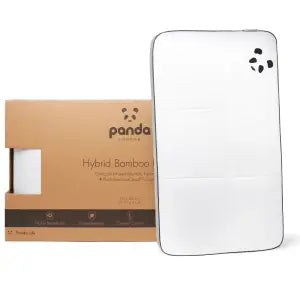 Hybrid Bamboo Pillow
Hybrid Bamboo Pillow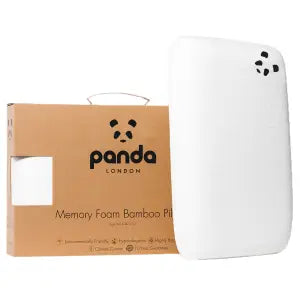 Memory Foam Bamboo Pillow
Memory Foam Bamboo Pillow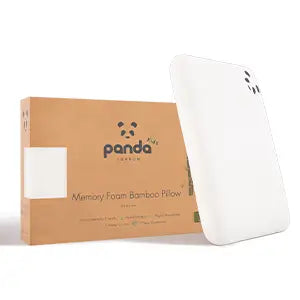 Kids Memory Foam Bamboo Pillow
Kids Memory Foam Bamboo Pillow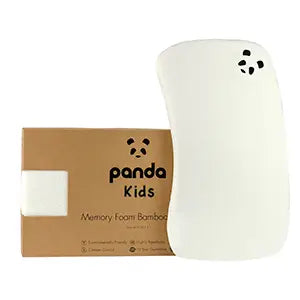 Baby Memory Foam Bamboo Pillow
Baby Memory Foam Bamboo Pillow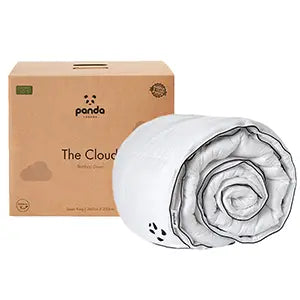 Panda Cloud Duvet
Panda Cloud Duvet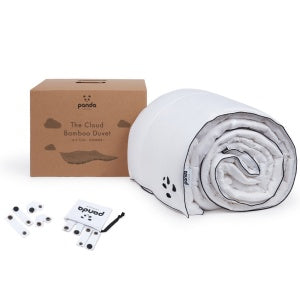 Bamboo Summer Duvet
Bamboo Summer Duvet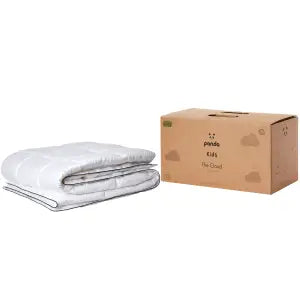 Kids Cloud Duvet
Kids Cloud Duvet

![[ForestGreen] Panda London Bamboo Lyocell Bedding Set Package](http://pandalondon.com/cdn/shop/files/Bamboo_Lyocell_Bedding_Set_Package.jpg?v=1713800411&width=768)
![[ForestGreen] Panda London Bamboo Lyocell Texture](http://pandalondon.com/cdn/shop/files/Green-Texture.jpg?v=1713800527&width=768)
![[ForestGreen] Bamboo Lyocell Green Corner Panda London](http://pandalondon.com/cdn/shop/files/GreenPCCorner.jpg?v=1713800525&width=768)
![[ForestGreen] Bamboo Lyocell Green Buttons Panda London](http://pandalondon.com/cdn/shop/files/BambooLyocellButtonsGreen.jpg?v=1713800525&width=768)
![[ForestGreen] Panda London Bamboo Lyocell Green Fitted Sheet](http://pandalondon.com/cdn/shop/files/Green_Fitted_Sheet.jpg?v=1713800503&width=768)
![[ForestGreen] Panda London Complete Bamboo Lyocell Bedding Set](http://pandalondon.com/cdn/shop/files/GreenBedding-FullSet.jpg?v=1713800527&width=768)
![[Cream] Panda London Bamboo Lyocell Full Bedding Set](http://pandalondon.com/cdn/shop/files/Bamboo_Lyocell_Bedding_Set_Package_Cream.jpg?v=1713800626&width=768)
![[Cream] Panda London Bamboo Lyocell Cream Texture](http://pandalondon.com/cdn/shop/files/PebbleCream-Texture.jpg?v=1713800973&width=768)
![[Cream] Panda London Bamboo Lyocell Full Bedding Set Cream Corner](http://pandalondon.com/cdn/shop/files/PebbleCreamPCCorner.jpg?v=1713800973&width=768)
![[Cream] Panda London Bamboo Lyocell Full Bedding Panda Bamboo button](http://pandalondon.com/cdn/shop/files/PebbleCreamButton.jpg?v=1713800973&width=768)
![[Cream] Panda London Bamboo Lyocell Full Bedding Fitted Sheet](http://pandalondon.com/cdn/shop/files/PebbleCreamFittedSheet.jpg?v=1713800973&width=768)
![[Cream] Panda London Bamboo Lyocell Full Bedding Set Lifestyle Image](http://pandalondon.com/cdn/shop/files/PebbleCreamBedding-FullSet.jpg?v=1713800973&width=768)
![[CoconutWhite] Bamboo and French linen Bedding Full Set Package](http://pandalondon.com/cdn/shop/files/Bamboo_and_French_Linen_Coconut_White_Bedding_set_-_webp.webp?v=1739374436&width=800)
![[CoconutWhite] Bamboo and French linen Bedding Set Pillows](http://pandalondon.com/cdn/shop/files/CoconutWhite_-_BambooFrenchLinen-_Bedding_Set_01.webp?v=1739374404&width=1000)
![[CoconutWhite] Bamboo and French linen Bedding Set Full](http://pandalondon.com/cdn/shop/files/CoconutWhite_-_BambooFrenchLinen-_Bedding_Set_02.webp?v=1739374404&width=1000)
![[CoconutWhite] Bamboo and French linen Bedding Texture](http://pandalondon.com/cdn/shop/files/CoconutWhite_-_BambooFrenchLinen-_Bedding_Set_Texture.webp?v=1739374404&width=1000)
![[CoconutWhite] Bamboo and French linen Bedding Set Two Pillows](http://pandalondon.com/cdn/shop/files/CoconutWhite_-_BambooFrenchLinen-_Pillows.webp?v=1739374404&width=1000)
![[HimalayanPink] HimalayanPink Bamboo and French linen Bedding Set Package](http://pandalondon.com/cdn/shop/files/HimalayanPink_-_BambooFrenchLinen-_Bedding_Set_Package_03.webp?crop=region&crop_height=1090&crop_left=205&crop_top=0&crop_width=1090&v=1739374404&width=1500)
![[HimalayanPink] HimalayanPink Bamboo and French linen Bedding Set Pillows with flowers](http://pandalondon.com/cdn/shop/files/HimalayanPink_-_BambooFrenchLinen-_Bedding_Set_01.webp?v=1739374404&width=1000)
![[HimalayanPink] HimalayanPink Bamboo and French linen Bedding Set Full](http://pandalondon.com/cdn/shop/files/HimalayanPink_-_BambooFrenchLinen-_Bedding_Set_02.webp?v=1739374404&width=1000)
![[HimalayanPink] HimalayanPink Bamboo and French linen Bedding Set Package Texture](http://pandalondon.com/cdn/shop/files/HimalayanPink_-_BambooFrenchLinen-_Bedding_Set_Texture.webp?v=1739374404&width=1000)
![[HimalayanPink] HimalayanPink Bamboo and French linen Bedding Set Package Two Pillowscases](http://pandalondon.com/cdn/shop/files/HimalayanPink_-_BambooFrenchLinen-_Pillows.jpg?v=1739374404&width=1000)
![[MidnightNavy] MidnightNavy Bamboo and French linen Bedding Set Package](http://pandalondon.com/cdn/shop/files/MidnightNavy_-_BambooFrenchLinen-_Bedding_Set_03_Package.webp?crop=region&crop_height=1090&crop_left=205&crop_top=0&crop_width=1090&v=1739374404&width=1500)
![[MidnightNavy] MidnightNavy Bamboo and French linen Bedding Set Pillows with flowers](http://pandalondon.com/cdn/shop/files/MidnightNavy_-_BambooFrenchLinen-_Bedding_Set_01.webp?v=1739374404&width=1000)
![[MidnightNavy] MidnightNavy Bamboo and French linen Bedding Set Full](http://pandalondon.com/cdn/shop/files/MidnightNavy_-_BambooFrenchLinen-_Bedding_Set_02.webp?v=1739374404&width=1000)
![[MidnightNavy] MidnightNavy Bamboo and French linen Bedding Set Package Texture](http://pandalondon.com/cdn/shop/files/MidnightNavy_-_BambooFrenchLinen-_Bedding_Set_Texture.webp?v=1739374404&width=1000)
![[MidnightNavy] MidnightNavy Bamboo and French linen Bedding Set Package Two Pillows](http://pandalondon.com/cdn/shop/files/MidnightNavy_-_BambooFrenchLinen-_Bedding_Set_Pillows.jpg?v=1739374404&width=1000)
![[Natural] Natural Bamboo and French linen Bedding Set Package](http://pandalondon.com/cdn/shop/files/Natural_-_BambooFrenchLinen-_Bedding_Set_Package.webp?crop=region&crop_height=1090&crop_left=205&crop_top=0&crop_width=1090&v=1739374404&width=1500)
![[Natural] Natural Bamboo and French linen Bedding Set Full Panda London](http://pandalondon.com/cdn/shop/files/Natural_-_BambooFrenchLinen-_Bedding_Set_01.webp?v=1739374404&width=1000)
![[Natural] Natural Bamboo and French linen Bedding Set Full Set](http://pandalondon.com/cdn/shop/files/Natural_-_BambooFrenchLinen-_Bedding_Set_02.webp?v=1739374404&width=2000)
![[Natural] Natural Bamboo and French linen Bedding Set Texture](http://pandalondon.com/cdn/shop/files/Natural_-_BambooFrenchLinen-_Bedding_Set_Texture.webp?v=1739374404&width=1000)
![[Natural] Natural Bamboo and French linen Bedding Set Pillows and Pillowcases](http://pandalondon.com/cdn/shop/files/Natural_-_BambooFrenchLinen-_Bedding_Set_Pillows.jpg?v=1739374404&width=1000)
![[SlateGrey] SlateGrey Bamboo and French linen Bedding Set Package](http://pandalondon.com/cdn/shop/files/SlateGrey_-_BambooFrenchLinen-_Bedding_Set_Package.webp?crop=region&crop_height=1090&crop_left=205&crop_top=0&crop_width=1090&v=1739374404&width=1500)
![[SlateGrey] SlateGrey Bamboo and French linen Bedding Set Full](http://pandalondon.com/cdn/shop/files/SlateGrey_-_BambooFrenchLinen-_Bedding_Set_01.webp?v=1739374404&width=1000)
![[SlateGrey] SlateGrey Bamboo and French linen Bedding Set Full Panda London](http://pandalondon.com/cdn/shop/files/SlateGrey_-_BambooFrenchLinen-_Bedding_Set_02.webp?v=1739374404&width=1000)
![[SlateGrey] SlateGrey Bamboo and French linen Bedding Set Texture](http://pandalondon.com/cdn/shop/files/SlateGrey_-_BambooFrenchLinen-_Bedding_Set_Texture.webp?v=1739374404&width=1000)
![[SlateGrey] SlateGrey Bamboo and French linen Bedding Set Pillows Two](http://pandalondon.com/cdn/shop/files/SlateGrey_-_BambooFrenchLinen-_Bedding_Set_Pillows_and_pillowcases.jpg?v=1739374404&width=1000)
![[SilverLightGrey] SilverLightGrey Bamboo and French linen Bedding Set Package](http://pandalondon.com/cdn/shop/files/SlateGrey_-_BambooFrenchLinen-_Bedding_Set_Package_1abba039-dafb-440b-8faf-5690962c6922.webp?crop=region&crop_height=1090&crop_left=205&crop_top=0&crop_width=1090&v=1739374404&width=1500)
![[SilverLightGrey] SilverLightGrey Bamboo and French linen Bedding Set Pillow](http://pandalondon.com/cdn/shop/files/SlateGrey_-_BambooFrenchLinen-_Bedding_Set_01_b1f7b31a-7706-47e9-951a-9baeb34d589a.webp?v=1739374404&width=1000)
![[SilverLightGrey] SilverLightGrey Bamboo and French linen Bedding Set Full](http://pandalondon.com/cdn/shop/files/SlateGrey_-_BambooFrenchLinen-_Bedding_Set_02_554e8cc5-b373-485a-a9e2-91fc3ff381ab.webp?v=1739374404&width=1000)
![[SilverLightGrey] SilverLightGrey Bamboo and French linen Bedding Set Texture](http://pandalondon.com/cdn/shop/files/SlateGrey_-_BambooFrenchLinen-_Bedding_Set_Texture_03.webp?v=1739374404&width=1000)
![[SilverLightGrey] SilverLightGrey Bamboo and French linen Bedding Set Two pillows](http://pandalondon.com/cdn/shop/files/SlateGrey_-_BambooFrenchLinen-_Bedding_Set_Pillows_both.jpg?v=1739374404&width=1000)
